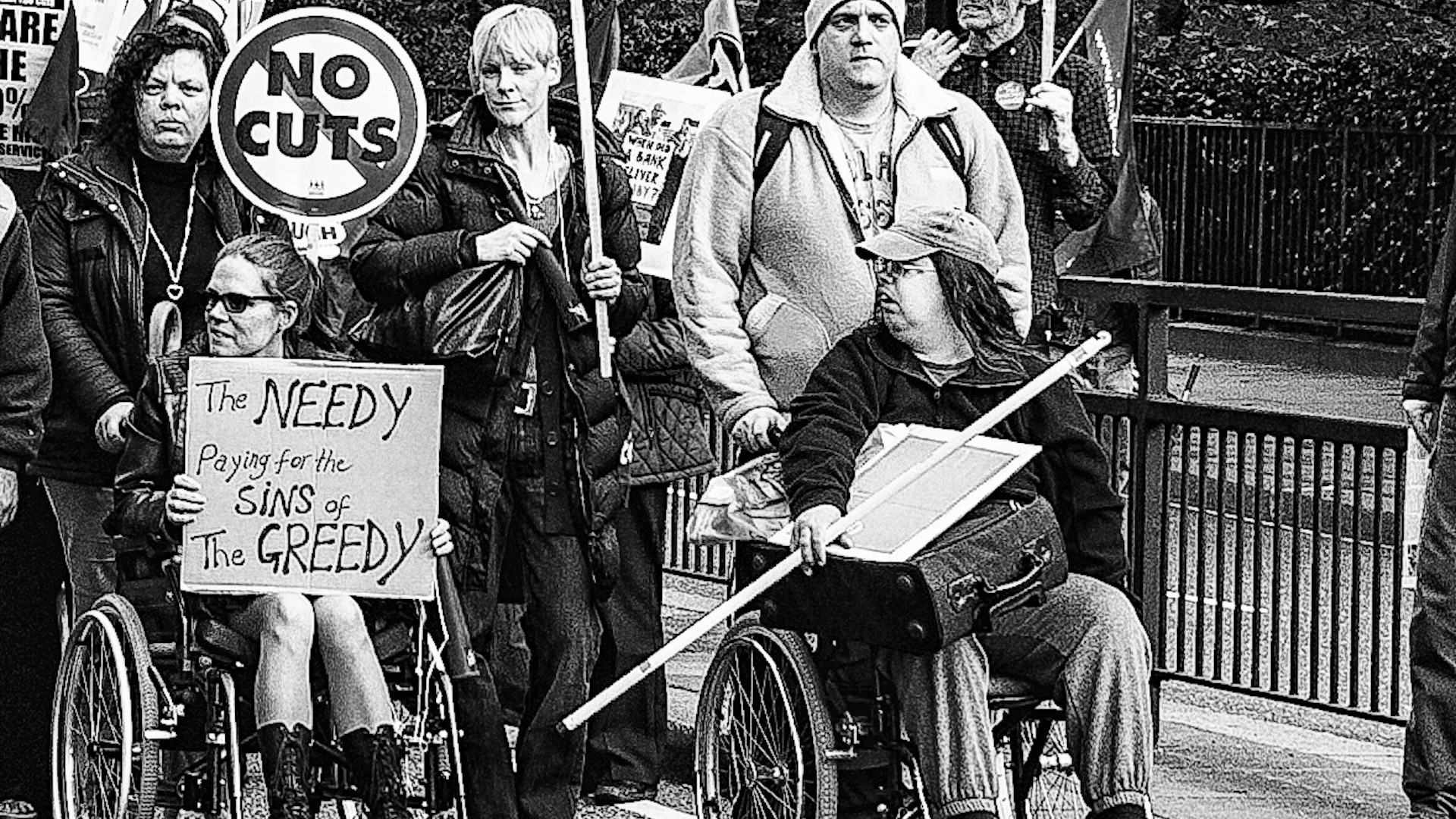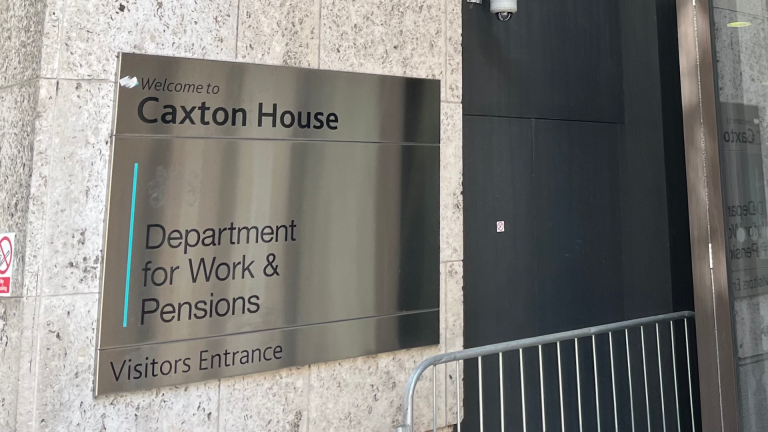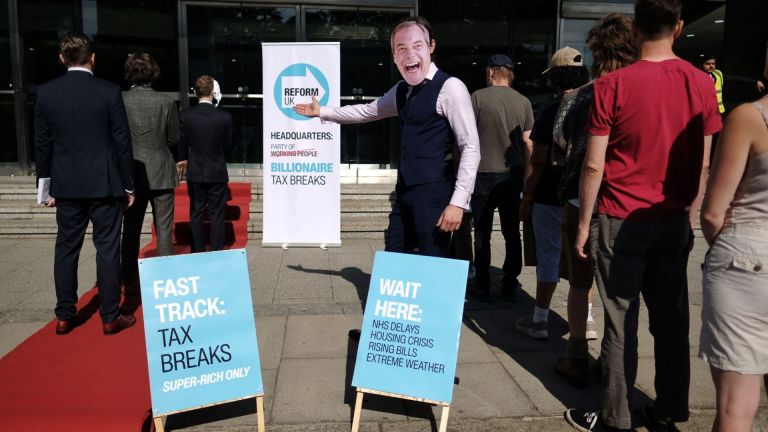Our reporting shows that this is not an easy system to navigate – far from it.
The UK’s disability benefits system has been condemned by charities, MPs, the United Nations, the Equality and Human Rights Commission and many more. And yet little has changed. In fact, it has probably got worse.
In its response to our reporting, the DWP previously said: “We support millions of people every year and our priority is that they receive a timely, supportive and compassionate service.
“PIP entitlement is assessed by healthcare professionals and decisions are made using all the available information. If someone disagrees with a decision, they can ask for this to be reconsidered and appeal to an independent tribunal.”
The Conservative government recently announced a series of proposals which would make the benefits system even tougher for disabled people. Rishi Sunak said there was a “sick note culture” and he worried about benefits becoming a “lifestyle choice”.
Ministers have proposed cuts to disability benefits, tougher sanctions for people out of work and regular PIP payments being replaced with one-off grants.
Advertising helps fund Big Issue’s mission to end poverty
It is all part of a plan to get disabled people into work. There are more than 2.8 million people out of work due to long-term sickness, according to recent figures from the Office for National Statistics (ONS).
An increasing welfare bill and gaps in the workforce are challenges the next government must address, but research shows that a punitive approach can push people further away from work and deeper into poverty. Sanctions can actually drive people to disability benefits, research shows.
Michael Clarke, head of information programmes at anti-poverty charity Turn2Us, explains: “Policies like benefit sanctions, the two-child limit, and stricter conditionality are destroying trust, damaging health, and deterring people when they need help the most.
“Political leaders must act now. They need to listen to people’s experiences and build a compassionate, fair system for everyone. This means ensuring benefits cover essential living costs and abolishing the two-child limit and sanctions. The demand for a system that truly supports and reassures those struggling to get by is loud and clear across the UK.”
Is Labour much better? The party tipped to win the general election is also concerned about getting people back into work and it is yet to confirm whether it would drop the Conservatives’ plans.
Shadow work and pensions secretary Liz Kendall said earlier this year there would be “no option for a life on benefits” under a Labour government, while setting out plans to encourage unemployed young people into work. Her predecessor Jonathan Ashworth also said there would be continued conditionality.
Advertising helps fund Big Issue’s mission to end poverty
But Labour has also suggested a more supportive approach – such as new local plans to get more people with health conditions and disabilities into work.
Shadow disability minister Vicky Foxcroft said: “DWP too often fails to get decisions right first time, leading to lengthy delays, reassessments and a stressful appeals process.”
She added that the Tories have “run the health and care system into the ground” and that Labour would “support disabled people to live independently, enable as many as possible to work and fix the NHS to make sure people get the treatment they need”.
The Big Issue’s Blueprint for Change is calling for the next government to reform the increasingly punitive benefits system and replace it with one which helps those most in need.
It wants the Back to Work Plan to be reformed to focus on mentorship, confidence-building models and realistic routes to move people back into sustainable employment, rather than unnecessary and harsh punishments.
There also needs to be increased job security, better pay and flexibility offered by employers.
Advertising helps fund Big Issue’s mission to end poverty
After all, work isn’t always a route out of poverty. Around two-thirds (68%) of working-age adults in poverty live in a household where at least one adult is in work. This figure was lower than 50% in 1996/97.
Ayla Ozmen, director of policy and campaigns at Z2k, said: “Any new government that is serious about tackling this challenge must move towards a disability benefits system that allows people to try work without risking destitution. But current plans on the table fail to address this risk and will simply push many disabled people deeper into poverty.
“We need all political parties to commit to changing this dangerous direction of travel, scrapping plans to tighten the work capability assessment from next year and to moving towards a system that truly works for disabled people by removing the risk and inadequacy currently built into universal credit.”
Figures published by the DWP show that its planned changes to the work capability assessment, which are due to come into effect next year, will lead to lower benefits or higher work-search conditions for around 457,000 people by 2028/29.
But reporting by the Big Issue shows that this will only lead to 15,400 more people finding paid work.
James Taylor, director of strategy at disability equality charity Scope, said: “Disabled voices must not be ignored in this election. Large numbers of disabled people tell us – year in, year out – that the benefits system isn’t working. It’s a punitive and adversarial system where wrong decisions are made too often, and it leaves many people feeling dejected.”
Advertising helps fund Big Issue’s mission to end poverty
Around seven in ten people referred to food banks in the Trussell Trust network are disabled. Often, because of the shame and stigma of going to a food bank, these are people who have reached such severe states of hunger and hardship that they have no other choice.
As charities like Scope have long pointed out, life costs more if you are disabled. On average, a household with a disabled person spends around £975 more every month for extra costs like powering equipment and heating bills.
Disabled people have repeatedly told the Big Issue that they want to work, but there just isn’t the support or flexibility there from employers.
Taylor added: “Disabled people are continually left out of pocket by a failing benefits system. The current system forces disabled people who are too unwell to work into unsuitable jobs by threatening to cut their benefits. We need to move to a situation where disabled people who want to work in some capacity are given the opportunity through a system that is voluntary and based on trust.
“We want to see all parties commit to wholesale welfare reform, and introduce tailored employment support for disabled people free from counter-productive conditionality.”
Do you have a story to tell or opinions to share about this? We want to hear from you. Get in touch and tell us more.
Advertising helps fund Big Issue’s mission to end poverty










